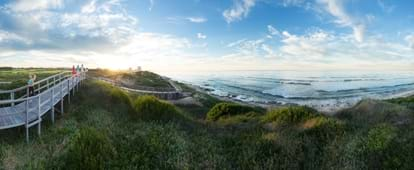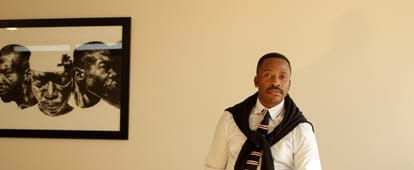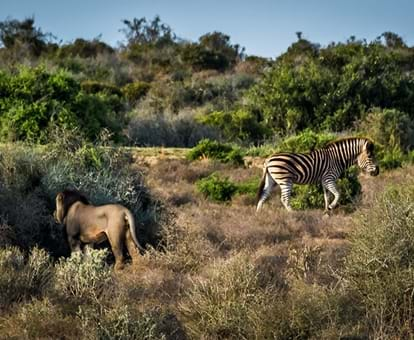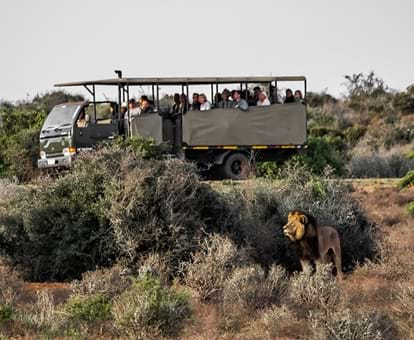By creating an account, I agree to the
Terms of service and Privacy policy
Choose your country and language:
Africa
Americas
Asia Pacific
Europe
PPort Elizabeth, along with the small town of Uitenhage and Despatch together constitute the metropolitan area known as Nelson Mandela Bay, a city of 1,1 million people of diverse backgrounds. It has earned a nickname as a Friendly City, owing to the generally hospitable nature of the inhabitants and a welcoming endowment of natural and social heritage.
Nelson Mandela Bay draws hundreds of thousands of holidaymakers throughout the year, especially during summer with its internationally acclaimed blue flag beaches along its magnificent coastline. It has five biomes, alluring bio-diversity and is home to the last known islands of the African penguin. The area is endowed with natural beauty. It has five biomes, magnificent bio-diversity and is home to the last known island homes of the African Penguin. Along its coastline are internationally acclaimed blue-flag beaches, which draw hundreds of thousands of holidaymakers throughout the year, especially during summer.
TThe city has a strong hospitality industry and has been host to global sporting events such as the World Sevens Rugby, some games during the 2010 FIFA World Cup, and international triathlon, Ironman and the annual Splash Festival. Port Elizabeth has three five-star hotels, including an international convention centre all operated by global hotel brands.
Nelson Mandela Bay must be the only city in the world with two operational ports within 30 kilometres from each other, namely the Port of Port Elizabeth and the Port of Ngqurha. These are aimed at serving as a transhipment hub for ships along the east and westerly route around the Indian and Atlantic oceans.
Port Elizabeth and Uitenhage underwent significant development from the early 1800s onwards with figures such as Sir George Grey, Sir Rufane Donkin, and Piet Retief playing a crucial role in the development of economic and social infrastructure. These include prestigious schools like Grey and Collegiate as well as markets, railway lines, churches, mosques and other facilities.
Throughout the 1800s the city had various waves of settlement, with mainly British settlers coming to the city from England.

TThe heritage sites in Port Elizabeth predominantly pay homage to the wars of conquest and resistance as well as the liberation struggle. Along Central and the areas formerly designated for whites only, there are forts, statues and other memorials commemorating the World Wars and resistance wars.
The city has various museums and libraries that document the history and heritage of not only the area but the entire Eastern Cape. In the major townships like New Brighton and Zwide, there is the Red Location Museum and Art Gallery as well as the graves of fallen struggle heroes in Zwide Cemetery, North End and Papenkuil. A memorial to the men who sank with the SS Mendi can be found at a traffic circle adjoining the major streets of Mendi, Ferguson and Feya Kulati in New Brighton. The memorial of the first uMkhonto we Sizwe combatants, including Vuyisile Mini, slain by the apartheid government, is located at the popular Embizweni Square along Mendi Road in New Brighton.
Port Elizabeth boats a number of tourist attractions, with pristine beaches, private game reserves and the Addo Elephant National Park nearby.
IIn the past decade, one sleepy residential area in the old CBD, Richmond Hill, suddenly awoke to become one of the coolest places to dine in the Bay. Reportedly the second-oldest suburb in the country, the area’s Stanley Street draws scores of hungry tourists and residents with its mouth-watering restaurants every day and night. With a great nightlife and welcoming vibe, Richmond Hill tells the tale of the Friendly City’s hospitality. Great culinary skills are displayed in the state-of-the-art restaurants, underscored by the Xhosa philosophy “Isisu somhambi asingakanani”, which literally means a traveller’s stomach has no limits or should not be measured.
In recent years, the city has seen massive investments in developments including the magnificent Bay West Mall along the western entrance on the N2 towards Cape Town. The more than R2 billion development joined the most successful shopping development in the Eastern Cape, Greenacres Mall.
The city is certainly a place to work, play, and invest in South Africa and is on a pathway to reclaim its long-lost economic dominance in South Africa judging by the massive inflow of foreign direct investment and major retail developments in recent years.

AAbout the author
Ongama Mtimka is a researcher, writer, analyst, strategist and lecturer based at Nelson Mandela University in Port Elizabeth, in the Eastern Cape. He features regularly on national and international television, radio and print media as a political analyst on South African politics. His key research interests are in political economy, development and heritage. His work experience spans over 15 years in marketing communications, strategy, media relations, fundraising, and executive support. He has worked in organisations involved in investment promotion, infrastructure development, local government and community development. Through his company Truesight Communications, he offers small business development consulting services to national and provincial small business development agencies in South Africa. Ongama has presented at international conferences in Brazil and twice in the US. He holds a Bachelor of Arts (journalism) from Rhodes University and Masters in South African Politics and Political Economy from Nelson Mandela University as well as certificates in strategic management, design driven entrepreneurship, and fundamentals of business expansion, among others. Ongama chairs the board of Bophelo Impilo Development Centre and is enrolled for his PhD at Nelson Mandela University where he lectures International Relations Honours and South African politics.
Related articles





